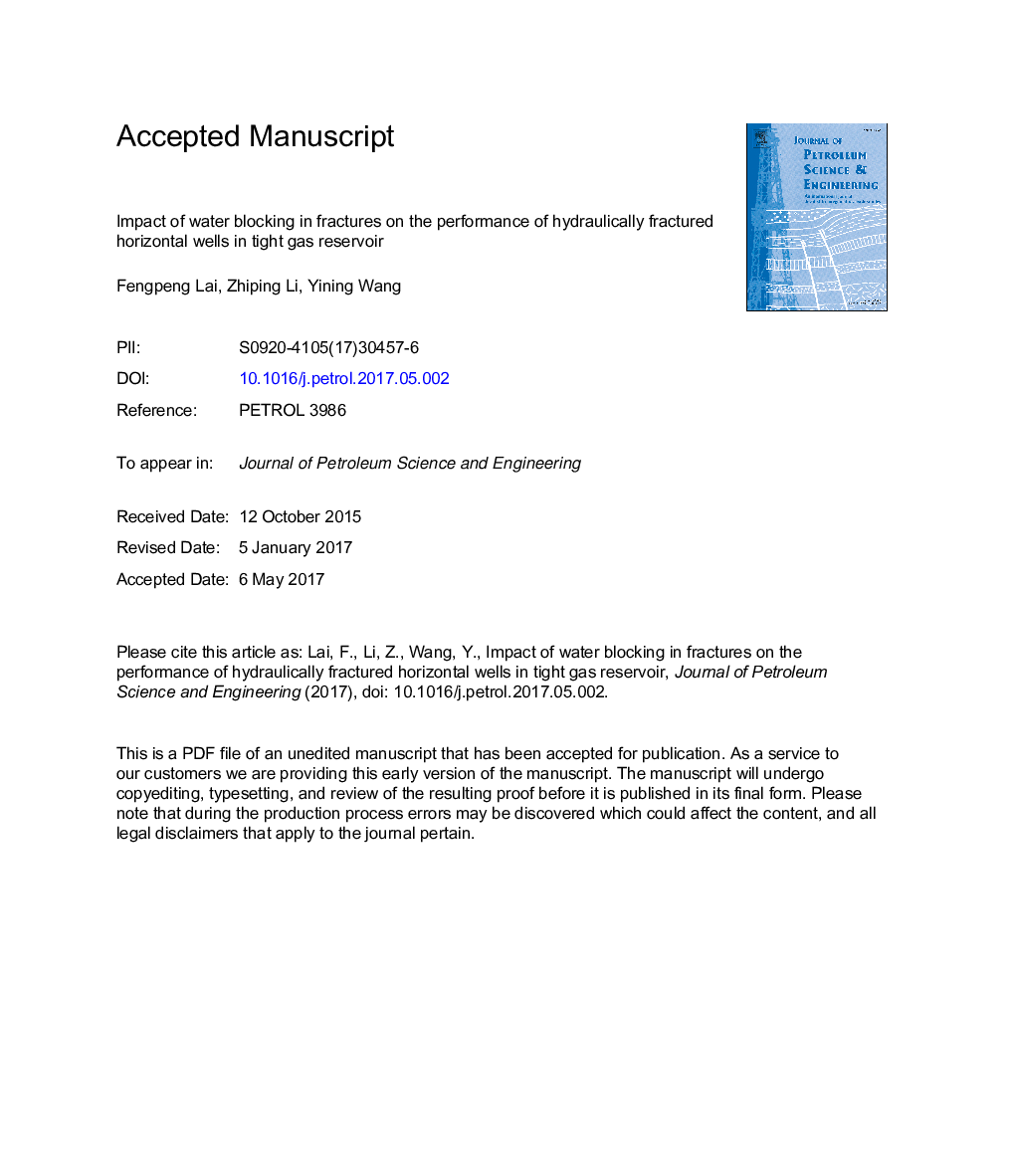| Article ID | Journal | Published Year | Pages | File Type |
|---|---|---|---|---|
| 5484095 | Journal of Petroleum Science and Engineering | 2017 | 19 Pages |
Abstract
Tight gas is a major gas resource which accounts for 14% of the total gas resources and 29% of unconventional gas in the world. The natural production of tight reservoir is very low, and multi-stage fracturing technology is widely used in horizontal wells. Multi-stage hydraulic fracturing for stimulating tight gas reservoirs requires a significant amount of fracturing fluid, which is usually water-based. Water blocking is considered as a potential type of damage in tight gas reservoirs. There are many factors affecting the production decline caused by the water blocking in fractures. However, the water blocking and fluid segregation in fractures are ignored. This study investigates the characteristics of water blocking in fractures and the effects of wettability, fracture fluid viscosity and fracture fluid filtration on water blocking and gas production. Numerical simulation is used to show that three stages can be used to describe the change of water saturation at the top and bottom of fractures, where the second stage indicates water blocking in hydraulic fractures. The results demonstrate that the stronger the interfacial tension, the more obvious the water wettability is, and the more water traps in the reservoir matrix. Decreasing interfacial tension improves the load recovery, and reduces the formation damage, and further enhances the gas production. A higher fracturing fluid viscosity causes more water traps at the bottom of fractures and intensifies the formation damage on tight gas wells. Results indicate that the fracturing fluid filtration has a great impact on the flowback performance and later gas production. Results suggest that increasing the filter cake thickness decreases the gas production peak value, and delays the time showing the peak of gas production, and further reduces the cumulative gas production.
Related Topics
Physical Sciences and Engineering
Earth and Planetary Sciences
Economic Geology
Authors
Fengpeng Lai, Zhiping Li, Yining Wang,
